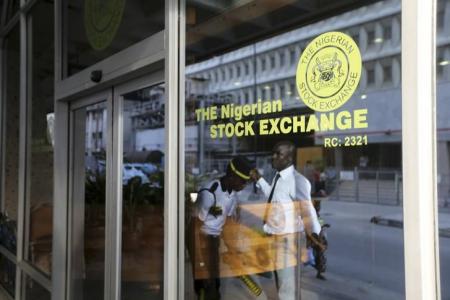
By Duncan Miriri
KIGALI Dec 2 (Reuters) – African exchanges should seek the elimination of capital gains tax on their securities and roll out new products like derivatives in the face of decreased interest from foreign investors, market participants said.
Global funds, who sought African assets in the years up to 2015, have been cutting their holdings, due to the commodity price crash last year and the anticipated interest rates increase in the United States.
Adding to the challenge, economic growth in Africa is projected to be the slowest in two decades this year, reflected in bourses like Nigeria, where daily volumes have shrunk by two thirds to $10 million, as foreign investors quit, put off by the slowdown and capital controls.
Karim Hajji, the chief executive of the Casablanca Stock Exchange, said other economies should learn from that.
“I don’t think governments should impose capital controls or things like that because that doesn’t work,” he said, adding that incentives like removal of capital gains tax would help.
Morocco, which does not levy a capital gains tax on stock investments, is enjoying a 20 percent rally this year, bucking the trend among others on the continent where prices are down.
Executives of stock markets and brokerages gathered at a meeting of the African Securities Exchange’s Association (ASEA) in Rwanda this week said introduction of additional investment products would help curb outflows.
“Our markets are really crying out for product development. We have been playing vanilla for too long,” said Kenneth Minjire, head of securities at Nairobi-based Genghis Capital.
African bourses rely too heavily on stocks and bonds and investors usually say they are small and illiquid.
The introduction of derivatives like stocks and currency futures will help to boost liquidity and attract new investors, Minjire said.
Only South Africa’s JSE offers derivatives like commodity contracts on the continent.
Kenya’s Nairobi Securities Exchange, has been testing its derivatives trading platform, whose launch has been postponed several times, but it is now expected next year.
“We are looking at the derivatives market coming into life and we are looking at new products,” Geoffrey Odundo, the chief executive of the NSE, said, adding the bourse wanted to offer currency futures and exchange traded funds.
Oscar Onyema, the chief executive of the Nigeria Stock Exchange, whose bourse was hammered due to exchange controls earlier this year, said governments needed to make it easier for global funds to gain access to trading including allowing investors to lend and borrow securities.
“African capital markets need to work with the government to make sure the ease of doing business, the environment is highly de-risked such that it is attractive for global flows to come here,” he said.
Other executives said there is no substitute for strengthening African economies.
“There is a need for African countries to introduce new sectors of activity, diversify the economy, and make those economies more resilient to short term fluctuations,” said Sunil Benimadhu, the CEO of the Stock Exchange of Mauritius. (Editing by Edmund Blair and Toby Chopra)